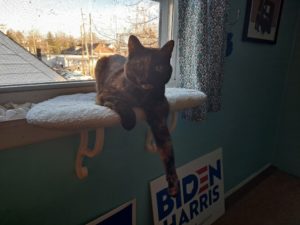TO: President Pinto
FROM: Connie Kendall Theado, AAUP-UC President
DATE: August 26th, 2021
RE: COVID-19 Communications
CC: Provost Ferme, College Deans, AAUP-UC Bargaining Unit
The COVID-19 pandemic has placed unprecedented pressure on the entire University of Cincinnati community, and it has been an exceptionally difficult eighteen months. As the professional organization representing the collective interests and workplace rights of more than 1,700 faculty at UC, AAUP-UC remains committed to being an effective partner who works with the Administration to fulfill the core academic missions of teaching and research. To that end, we are increasingly concerned about several ongoing communication issues that have unnecessarily complicated the return to campus for faculty, students, and staff.
Over the past several weeks, for instance, we have received numerous phone calls and emails asking for clarification regarding the information provided by the University about COVID-19 safety protocols and policies. A recurring concern from faculty focuses specifically on how various colleges and campuses have been receiving different and sometimes conflicting information about these very protocols and policies. The issues currently causing the most concern and confusion among faculty include:
- The UC COVID Check app, specifically how and when to use it;
- Mask wearing, particularly how the stated policy will be enforced and by whom;
- How and when PCR testing will be requested or required;
- And most recently, President Pinto’s decision to Tweet out an important announcement about the University’s position on vaccine mandates, rather than using official channels of communication.
From an institutional perspective, especially on a matter as serious as a global pandemic—which we know the Administration also takes very seriously—communication of vital information, like the concerns listed above, should be shared in a unified, consistent manner and from a centralized source. In other words, it should not be left to each college administration or individual academic unit heads to interpret and craft a message about COVID-related policy decisions or rules from the President’s or Provost’s offices. We strongly urge the Administration to revisit their communications model, which is not meeting the moment, and instead reach out to all constituent groups and shared governance bodies with unified and clear messaging.
In a recent statement on the re-opening of colleges and universities, AAUP President Irene Mulvey called on “campus administrations to do everything possible to ensure the highest level of health and safety,” noting that:Institutions of higher education exist to serve the common good. As places of knowledge creation and scientific discovery, our colleges and universities are uniquely situated to provide leadership by amplifying and promoting trust in science and CDC guidelines as well as putting in place sound public health policies and practices including making vaccination easy and convenient for all members of the campus community.”
In the spirit of shared governance, AAUP-UC is ready to work with the Administration to address the pressing concerns faculty have shared with us and that we are now sharing with you—including the critical question of vaccine mandates to protect our own health and wellbeing as well as the health and wellbeing of everyone in our UC community.
We are committed to promoting and assisting this work in any way we can.
Respectfully,
AAUP-UC Executive Council

 The Ohio Redistricting Commission is meeting around the state. Cincinnati’s meeting will be August 24, 2:30-5:30pm at
The Ohio Redistricting Commission is meeting around the state. Cincinnati’s meeting will be August 24, 2:30-5:30pm at 

 The Faculty Senate/AAUP-UC Joint Budget Committee was formed in Spring 2020 to analyze the Covid-19 pandemic’s impact on the UC budget, evaluate the extent of shared sacrifice across colleges and non-academic units, and identify strategies to preserve the core academic mission of instruction and research. After months of collecting information, conducting analysis, determining recommendations, and crafting all of this work into a presentable form, the Committee released its report in November 2020.
The Faculty Senate/AAUP-UC Joint Budget Committee was formed in Spring 2020 to analyze the Covid-19 pandemic’s impact on the UC budget, evaluate the extent of shared sacrifice across colleges and non-academic units, and identify strategies to preserve the core academic mission of instruction and research. After months of collecting information, conducting analysis, determining recommendations, and crafting all of this work into a presentable form, the Committee released its report in November 2020.